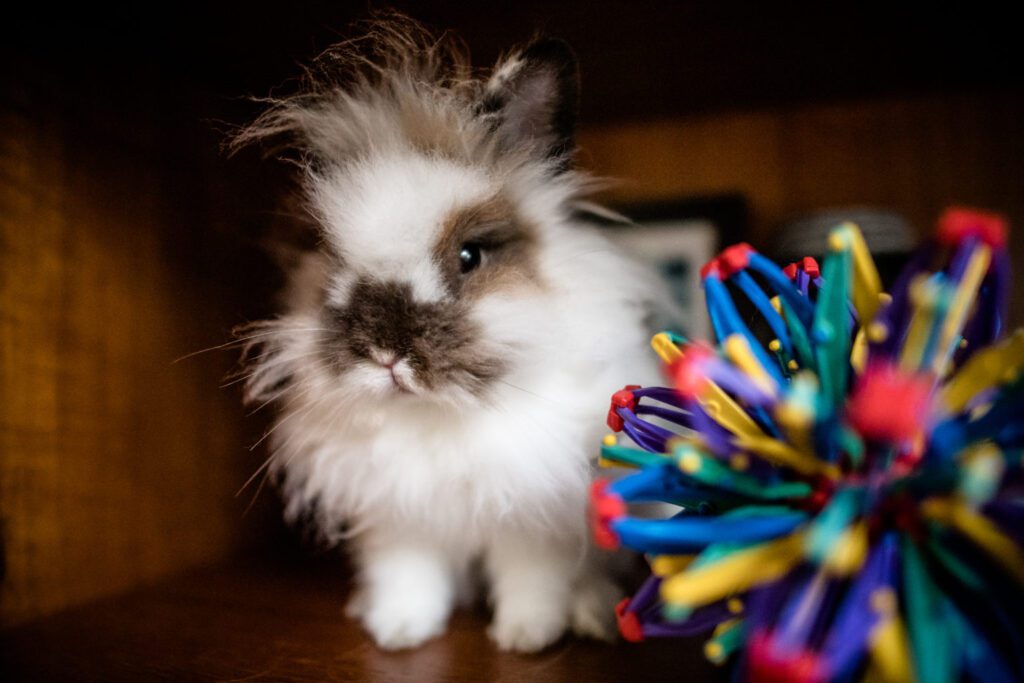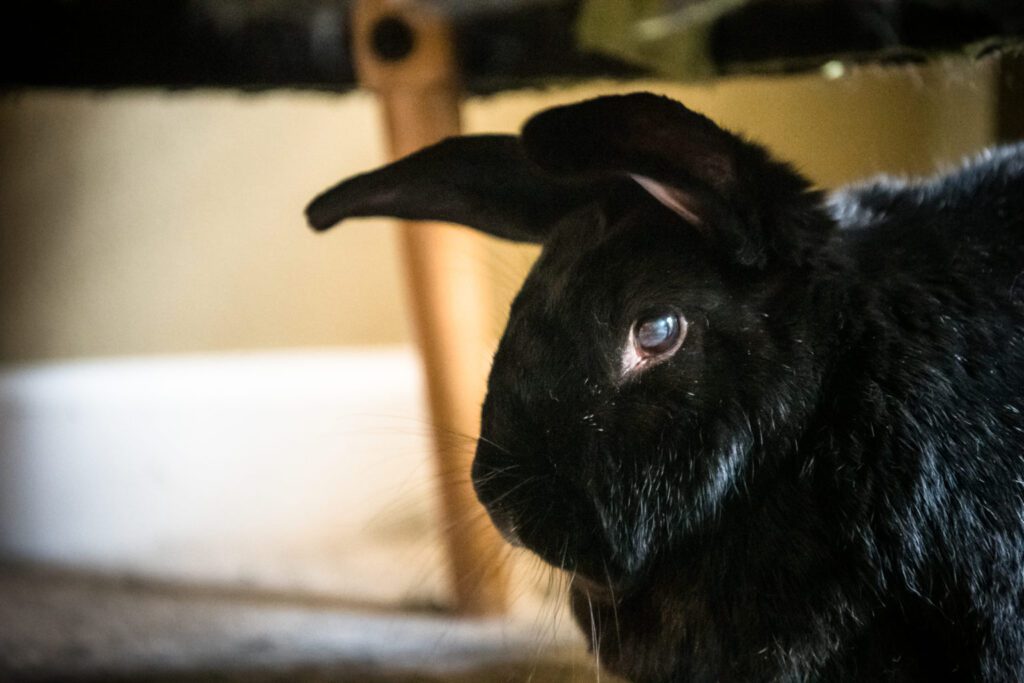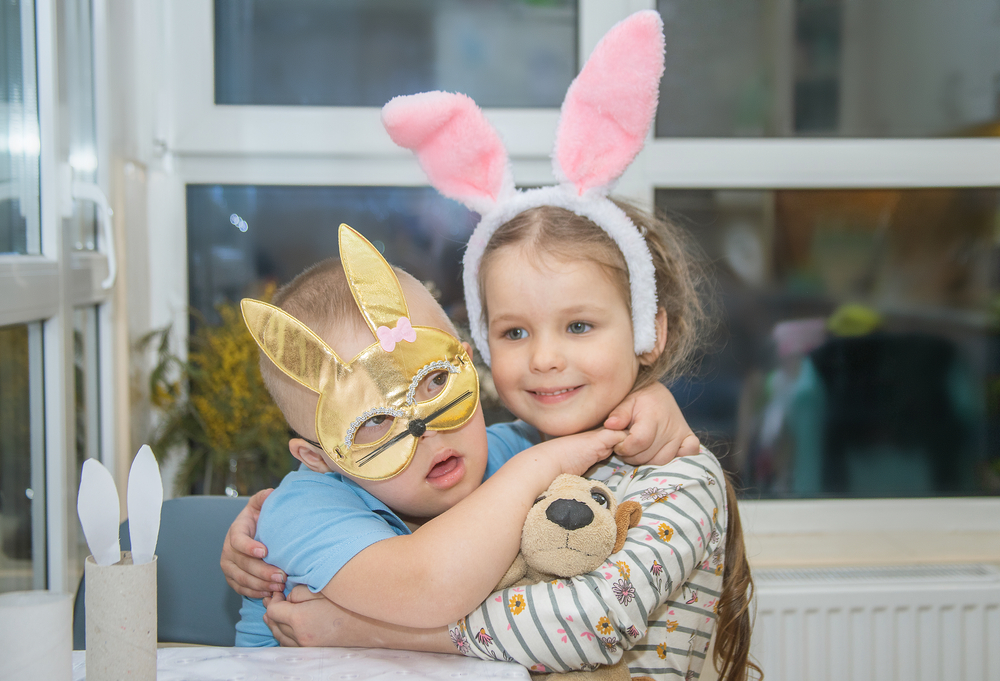According to the American Veterinary Medical Association, animals can provide essential aid to people with disabilities and varying health conditions. There are three types of assistance animals: service animals, emotional support animals and therapy animals. And dogs, cats and horses no longer rule the roost when it comes to assistance animals! Bunnies are hopping into the mix to provide physical and emotional support to people in need too.
Rabbits as Emotional Support Animals
The dog is commonly called “man’s best friend” but, as it turns out, rabbits can also make people pretty hoppy (well, that’s happy). Amy Pratt is a lifelong rabbit owner who has been specializing in rabbits at the Humane Rescue Alliance. Through her website, BunnyLady.com, Pratt outlines why many animal lovers find rabbits to be ideal emotional support animals. Rabbits are gentle, quiet, clean, don’t require much space and are receptive to training, among other positive attributes. Pratt reminds her website visitors that in order for rabbits (or any animal) to be certified as an emotional support pet, documentation must be signed by a licensed psychologist or therapist.
Many people impacted by emotional stress find rabbits to be calming. This includes those impacted by depression, PTSD, schizophrenia and other conditions, according to advocates like Sandra Lee Amidon and Rebecca Clawson who serve as educators for the House Rabbit Society. Headquartered in Richmond, California, this nonprofit animal welfare organization has a mission of rabbit rescue and education, which includes the promotion of rabbits as emotional support pets and/or therapy animals.
“A person with PTSD could benefit from petting a relaxed rabbit,” Clawson suggests. For example, she says, “Interacting with an adorable nose-wriggling, tooth-purring, relaxed rabbit who responds positively to gentle pets while the individual temporarily contains their own anxiety can be soothing and healing.”

Rabbits As Therapy Animals
Therapy animals are becoming increasingly popular in hospitals, nursing homes, schools and post-trauma or disaster settings. Animal-assisted therapy is a therapeutic intervention that incorporates animals into a treatment plan, and is typically used to enhance or complement the benefits of more traditional therapy tactics.
Because patients’ needs are uniquely different, goals associated with animal-assisted therapy vary. For someone concentrating on mental health, for instance, benefits may include social development, increased self-esteem, better social skills and increased empathy and nurturing skills. For someone focused on physical gains, animal-assisted therapy may address flexibility, mobility, strength or other skills.
As a survivor of traumatic brain injury (TBI), Clawson personally attests to the impact that rabbits have had on her own therapeutic journey. “Caring for bunnies has helped me with my physical, cognitive, emotional and social needs. I’m able to work on balance and coordination when I get down on floor level to pet my bunnies and play with them or groom them. Picking up their supplies and toys, cleaning out litter boxes and shaking out their beds and blankets all help strengthen me too,” she declares.
And that’s not all. “I’m able to work on cognitive processing when I need to organize their veterinarian appointments and medication schedules and any changes in their diets or put together a supply order. I’m able to shut out any worry or anxiety and just focus on my rabbits being silly or napping peacefully,” Clawson, who resides in Utah, adds.
Clawson says she also enjoys interacting with and learning from other rabbit caregivers, rescuers and veterinary professionals because this motivates her to further tackle social anxiety. In addition to TBI survivors like Clawson, people with addiction, autism, dementia, multiple sclerosis, stroke, spinal cord injury and many other diverse disabilities and conditions also find success using animal-assisted therapy, which may include interaction with or observation of rabbits.
Amidon explains, “They [rabbits] have a variety of different personalities, so finding one that suits each individual, their specific needs and their lifestyle is generally doable when done through a rescue organization that knows each rabbit’s personality, behaviors and medical needs well.” She continues, “Some rabbits do well sitting on your lap and being pet for periods of time which can be great for those who experience loneliness or lack of trust in relationships with others (though these rabbits aren’t as common as normally portrayed), while some have more playful personalities which allows a trusting relationship to be developed through things like clicker training and types of interaction that is more suited to those with sensory disorders/illnesses who are looking for companionship that doesn’t require exposure to sensory triggers.”

Clawson believes anyone who can safely interact with a pet may respond well to rabbits. “A person with occupational therapy needs could benefit by gently stroking a snuggly rabbit’s forehead or ears, or by brushing the rabbit’s fur. They could also work on dexterity by picking up a toy or treat and offering it to a rabbit,” she says. And Clawson further offers, “A person with weakness issues could benefit from playing apple stick tug-of-war with a rabbit. They just hold the apple stick while the rabbit tugs, wins and scampers off with their prize.”
Additionally, a person receiving speech therapy might benefit from reading out loud to an inquisitive rabbit or by practicing saying the rabbit’s name.
Before You Hop to It
Before adopting a rabbit to serve as an emotional support pet or a therapy animal, animal lovers should do detailed research to find the best fit.
During the Easter season, rabbit sales significantly increase; but, sadly, far too many rabbits (plus chicks and ducks) are then abandoned at shelters within weeks of the holiday. In fact, rabbits are the third most frequently surrendered animal at shelters and the third most euthanized. That’s why the House Rabbit Society works to combat the common misunderstanding that rabbits are just easy starter pets or simply holiday gifts for children observing Easter.
Rabbits can be wonderful pets and, as highlighted in this article, serve as excellent emotional support pets or therapy animals. However, as the House Rabbit Society notes, it’s important to consider the following before making a holiday-inspired impulse purchase:
- Rabbits have an average lifespan of 8-14 years. Ownership is a commitment.
- Rabbits need to be spayed/neutered to prevent cancer and unwanted litters. Up to 80% of female rabbits will develop uterine cancer by age 4-6 if not spayed.
- Rabbits require a diet of hay, pellets and fresh vegetables.
- Rabbits should live indoors, inside a family’s home for their safety and health, with 2-4 hours of exercise time in a bunny-proofed environment each day.
- Rabbits need regular veterinary care by a vet with additional training in exotics, which can be expensive.
- Rabbits need an annual RHDV2 vaccine.
- Rabbits are not “low-maintenance” pets — they need as much care and attention as dogs and cats. It can also take longer to bond with them since they are prey animals and can be more fearful.







